The Cringeworthy Hypocrisy of Guernica
Mass resignations at the literary magazine following the publication of a piece by an Israeli peace activist reveal a part of the left that cannot countenance historical nuance.
The Cringeworthy Hypocrisy of “Guernica”
Mass resignations at the literary magazine following the publication of a piece by an Israeli peace activist reveal a part of the left that cannot countenance historical nuance.
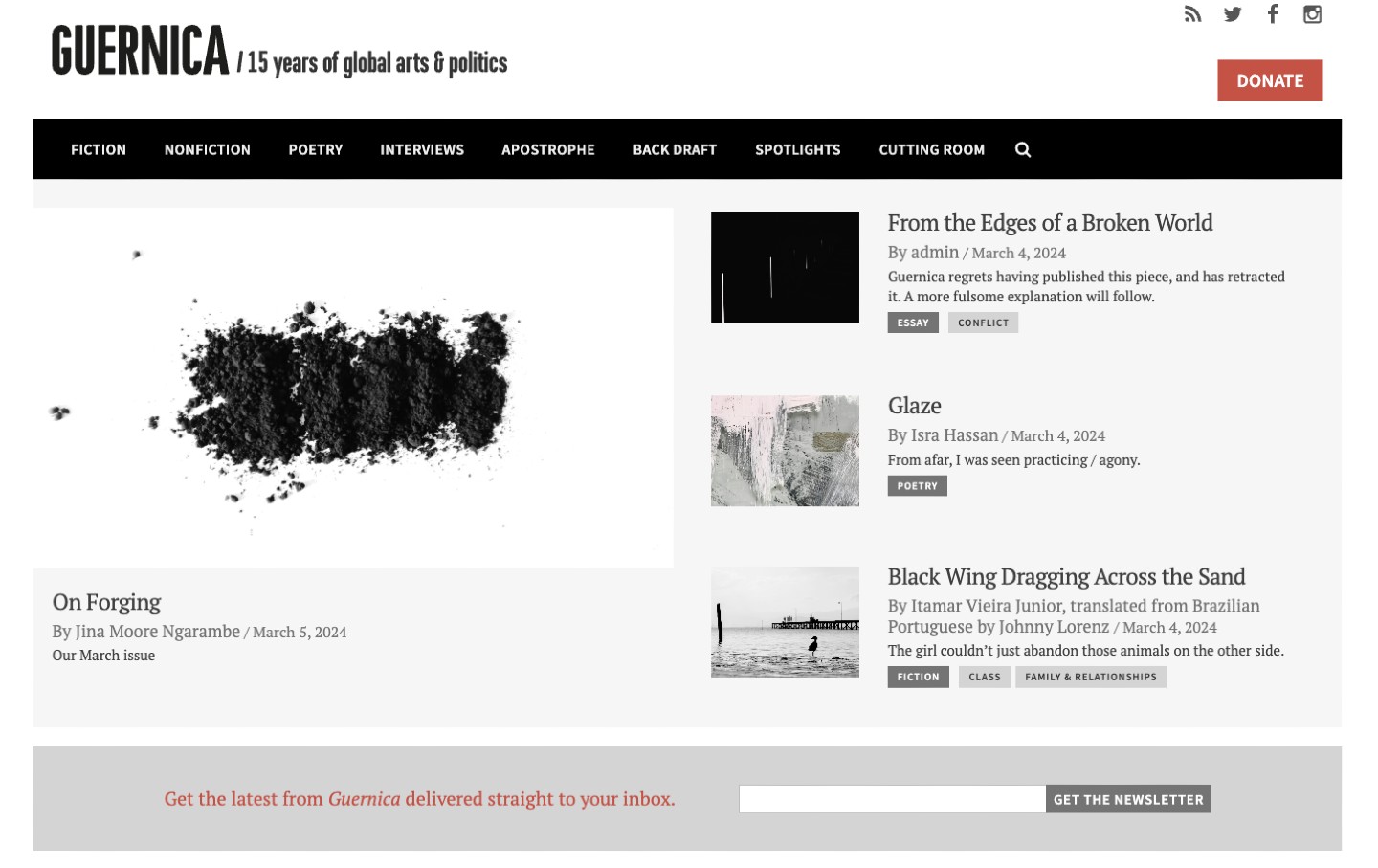
The homepage for Guernica.
My view from the West Coast this week takes me east, to New York City, where a group of supposedly left-wing, humanistic, intellectually engaged editors at Guernica outdid themselves in craven groupthink this week.
I refer to the mass resignations that followed the publication of Israeli peace activist and translator Joanna Chen’s brave and lyrical essay on attempting to live and work across religious and racial and linguistic divides in an impossibly violent, polarizing, and soul-crushing moment. One after the other, the editors competed to denounce the magazine’s decision to publish what Madhuri Sastry, the magazine’s copublisher, termed a “a hand-wringing apologia for Zionism”—and the magazine’s leadership responded not with a reasoned renunciation of intolerance in their midst, nor with references to the First Amendment or to strength in diversity of opinion, but by pulling the essay and issuing a groveling apology for having made the misjudgment of publishing it in the first place.
Sastry, who quit the magazine over the decision to host Chen’s work, wrote that the Israeli woman’s essay violated the “anti-imperialist spirit” of the publication. Another editor declared that publishing Chen’s essay meant Guernica had become “a pillar of eugenicist white colonialism masquerading as goodness.” Soon afterward, Chen’s essay disappeared from the website.
If this is what passes for the left today, God help us. Guernica’s cringeworthy backpedaling is redolent of the self-denunciations of Stalin’s purge victims or the coerced linguistic self-flagellations of academics during Mao’s Cultural Revolution. There’s no effort at genuine debate, no room for competing opinions, no space for historical nuance or complexity; there’s simply a demand that the party line be followed and that those who don’t be immediately censored.
If Chen were defending the Netanyahu government’s ghastly and indiscriminate slaughter in Gaza, I could understand the hostility. If she were defending right-wing West Bank settlers and their gun-toting supremacism, I could understand the hostility. If she were defending the fascistic words and actions of Israeli cabinet ministers such as Itamar Ben-Gvir, I could understand the hostility. But Chen, who is a lifelong anti-militarist and spends her days shuttling sick Palestinian children to healthcare facilities in Israel, is none of those things. She’s a voice for peace and reconciliation in a country that has gone mad. Yet, by virtue of her showing sympathy for slaughtered and kidnapped Israelis and recognizing the shared humanity of all victims in this conflict, she seems to have been deemed illegitimate by Guernica’s holier-than-thou staff.
Maybe if the magazine had a different name, say Free Speech Sucks or Too Lazy to Think the Issue Through, this behavior wouldn’t be so loathsome and hypocritical. But it’s named after one of the 20th century’s most important artistic creations, Picasso’s 1937 cri de coeur against militarism and violence, urging viewers to find empathy within themselves.
When I was growing up in London in the 1970s and ’80s, my grandparents had a large reproduction of Guernica hanging above their staircase, over the bend heading down to the ground floor.
For Mimi and Chimen, who had come of age in the interwar period, been active in the Communist Party as young adults, and watched in horror as fascism and antisemitism blossomed in 1930s Europe, that painting was more than a piece of art; it was a worldview. In a house with tens of thousands of books—my grandfather was one of England’s great book collectors, with a peerless collection both of socialist history and of Jewish history—Picasso’s nightmare imagery, in all its grotesque horror, stood out.
Guernica was a test run for the Luftwaffe; drop vast numbers of bombs on civilians in the Spanish Civil War, and see whether civil order could be maintained. Kill enough people, and see whether the will to resist would be broken. The road from Guernica to Warsaw to Rotterdam to the London Blitz, in the autumn of 1940, is a straight one. So, too, the mechanized horrors of Guernica lead to the slave camps and the death machinery of the Holocaust a handful of years later.
Guernica can be seen in so many other atrocities too: in Dresden; in Hiroshima and Nagasaki; in Vietnam and Cambodia; in the Soviet crushing of the Hungarian uprising of 1956; in the massacres in Cold War–era Central America or Indonesia; in the Chilean coup of September 11, 1973, and the Al Qaeda attacks of September 11, 2001; in the Iran-Iraq war; in Biafra; in Yemen; in the Balkans; in Rwanda; in Syria; in Chechnya; in Afghanistan; in the American invasion of Iraq; and, of course, in modern-day Gaza, in Netanyahu’s collective and relentless punishment of the Palestinian population in the months following the repellent Hamas attack of last October 7.
My point in this essay is not to critique Guernica’s staff for being opposed to the horrific bombing campaign on the civilians of Gaza but to point out the reductionist, and selective, nature of their editorial decision as well as their almost cartoon-like approach to history.
When I was growing up, the Holocaust hung over everything in my grandparents’ house: There were books on Auschwitz, annotated in my granddad’s minuscule handwriting with comments about an evil beyond comprehension; there were books on earlier episodes of antisemitism—the Russian pogroms, the expulsion of the Jews from Inquisition-era Spain, books on the Dreyfus Affair in fin de siècle France, and so on. At the salon that my grandparents ran, different casts of people would come to dinner every night. Had you been a guest, you might have found among your dining companions Holocaust survivors or families who had managed to escape to Palestine in the late 1930s or academics who had devoted entire careers to cataloguing the Nazi horrors. One of my grandparents’ closest friends was a French dentist, a Jewish woman who had escaped the Nazis by traversing the Pyrenees to Spain; another was a Czech doctor who had somehow survived an exterminatory war. Many of the guests were left-wing Israelis who had sought to build a socialist utopia in the early kibbutz movement. Many were lifelong campaigners against militarism and in favor of multiethnic coexistence. They would have been entirely simpatico to Chen’s worldview.
These men and women weren’t settler-colonizer overseers of a master race; they were the spat out, spat upon, vilified, starved victims of Imperial Russia in the late 19th and early 20th centuries, and of Nazi Germany a generation later, the survivors of an unprecedented industrial slaughter in which 6 million had been murdered. Many of them—when they arrived in Palestine, often bringing with them utopian, universalist, socialist beliefs—were emaciated and destitute. They were the bereft survivors of unspeakable horrors.
Popular
“swipe left below to view more authors”Swipe →That history doesn’t justify the displacement of, and the violence against, Palestinians that followed and that is ongoing today. It doesn’t justify the slide toward apartheid politics in Israel and the occupied territories of recent decades. But it does suggest that to understand the present in all its messy, three-dimensional complexity one must have at least a basic grounding in knowledge about the past. One doesn’t have to intellectually like the concept of a religiously defined state to recognize that an Auschwitz survivor who migrated to Israel after World War II was somewhat different from, and had rather distinct motivations to, say, a gold-and-silver hunting aristocratic Spanish conquistador in the years following Columbus’s “discovery” of the Americas.
The editors at Guernica fail this most basic of historical literacy tests. Instead, they fall back on simplistic slogans. If they’re going to denounce a lifelong peace activist such as Chen as being an imperialist and her essay as supporting “eugenicist white colonialism,” then, for consistency’s sake, they should remove from their editorial pages all essays (regardless of viewpoint) by Americans, Canadians, New Zealanders, Australians, not to mention all of Spanish descent from the Americas. They should probably remove non-Sami Swedes, Norwegians, and Finns; non-Celtic Englishmen; and, while we’re at it, non-Etruscan Italians, too.
But that, of course, would be absurd—about as absurd and cankered in spirit as, say, canceling a nuanced thinker such as Chen for the high crime of empathizing with Israeli victims of the October 7 terror attacks.
Disobey authoritarians, support The Nation
Over the past year you’ve read Nation writers like Elie Mystal, Kaveh Akbar, John Nichols, Joan Walsh, Bryce Covert, Dave Zirin, Jeet Heer, Michael T. Klare, Katha Pollitt, Amy Littlefield, Gregg Gonsalves, and Sasha Abramsky take on the Trump family’s corruption, set the record straight about Robert F. Kennedy Jr.’s catastrophic Make America Healthy Again movement, survey the fallout and human cost of the DOGE wrecking ball, anticipate the Supreme Court’s dangerous antidemocratic rulings, and amplify successful tactics of resistance on the streets and in Congress.
We publish these stories because when members of our communities are being abducted, household debt is climbing, and AI data centers are causing water and electricity shortages, we have a duty as journalists to do all we can to inform the public.
In 2026, our aim is to do more than ever before—but we need your support to make that happen.
Through December 31, a generous donor will match all donations up to $75,000. That means that your contribution will be doubled, dollar for dollar. If we hit the full match, we’ll be starting 2026 with $150,000 to invest in the stories that impact real people’s lives—the kinds of stories that billionaire-owned, corporate-backed outlets aren’t covering.
With your support, our team will publish major stories that the president and his allies won’t want you to read. We’ll cover the emerging military-tech industrial complex and matters of war, peace, and surveillance, as well as the affordability crisis, hunger, housing, healthcare, the environment, attacks on reproductive rights, and much more. At the same time, we’ll imagine alternatives to Trumpian rule and uplift efforts to create a better world, here and now.
While your gift has twice the impact, I’m asking you to support The Nation with a donation today. You’ll empower the journalists, editors, and fact-checkers best equipped to hold this authoritarian administration to account.
I hope you won’t miss this moment—donate to The Nation today.
Onward,
Katrina vanden Heuvel
Editor and publisher, The Nation
More from The Nation
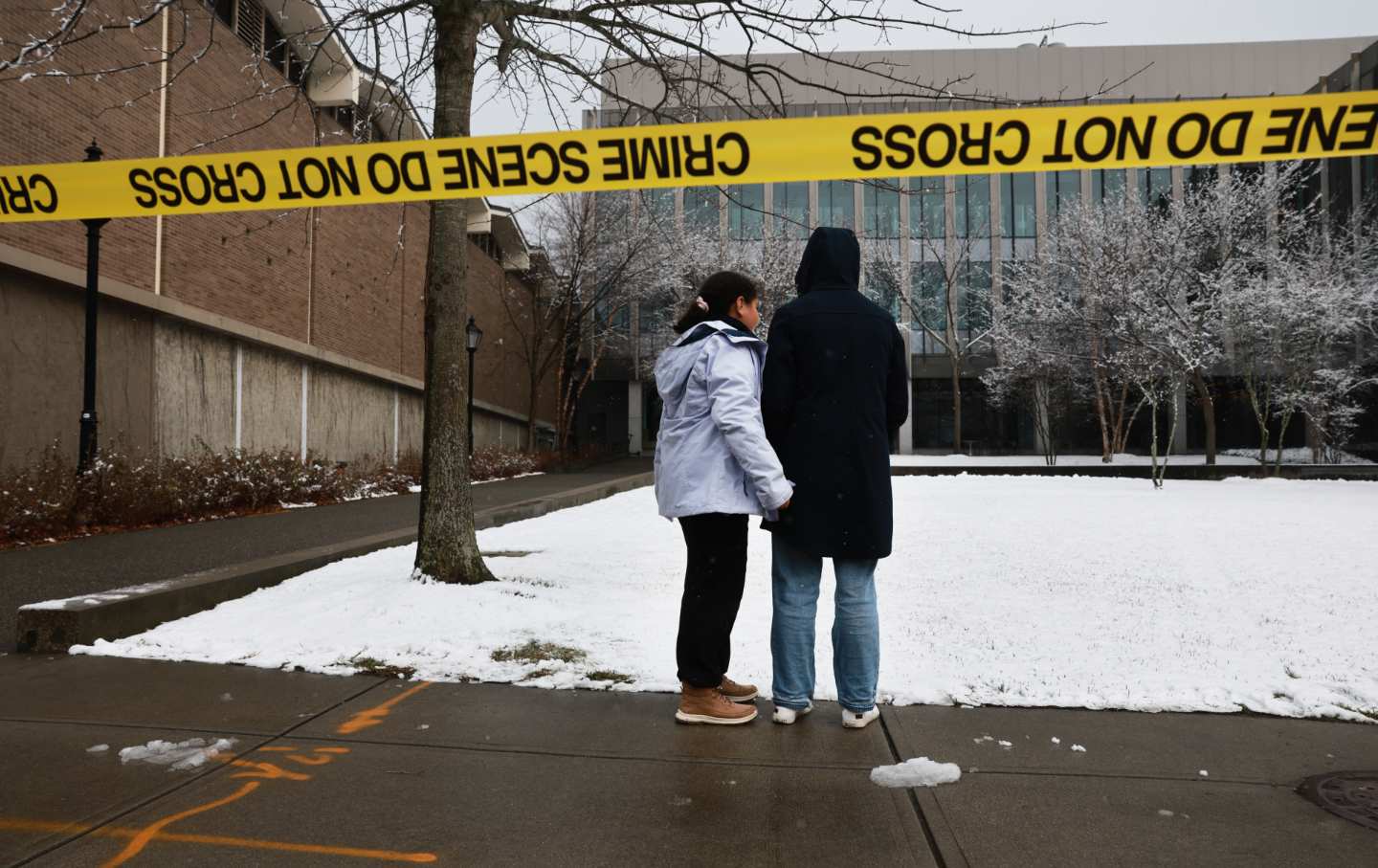
In America, Mass Shooting Survivors Can Never Know Peace In America, Mass Shooting Survivors Can Never Know Peace
A growing number of US residents have lived through more than one massacre.
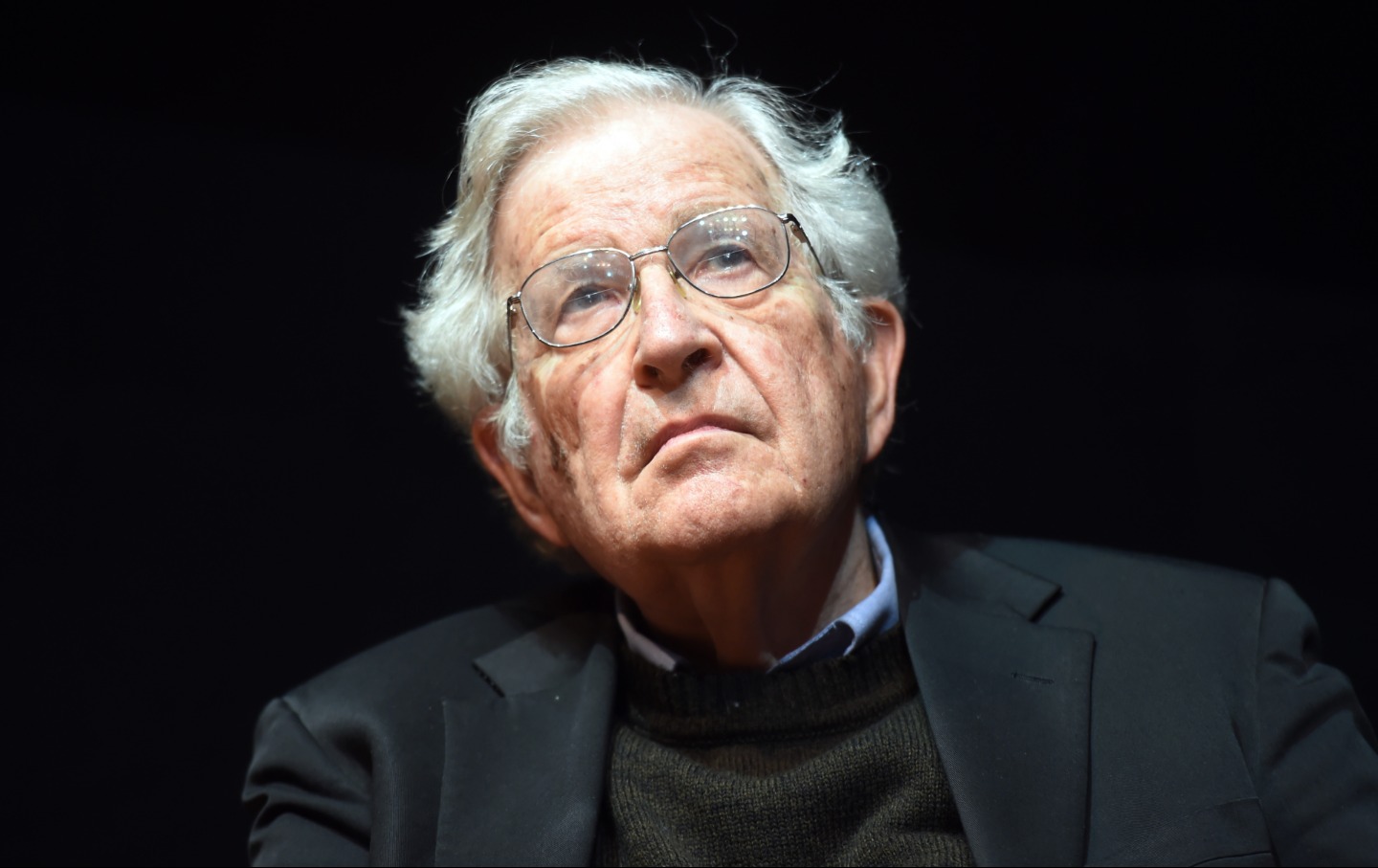
What the Noam Chomsky–Jeffrey Epstein E-mails Tell Us What the Noam Chomsky–Jeffrey Epstein E-mails Tell Us
Chomsky has often suffered fools, knaves, and criminals too lightly. Epstein was one of them. But that doesn’t mean Chomsky was part of the “Epstein class.”

Have We Normalized Nuclear War? Have We Normalized Nuclear War?
If anything, the widespread lack of comprehension (and so protest) is one big reason nuclear war remains so chillingly possible.
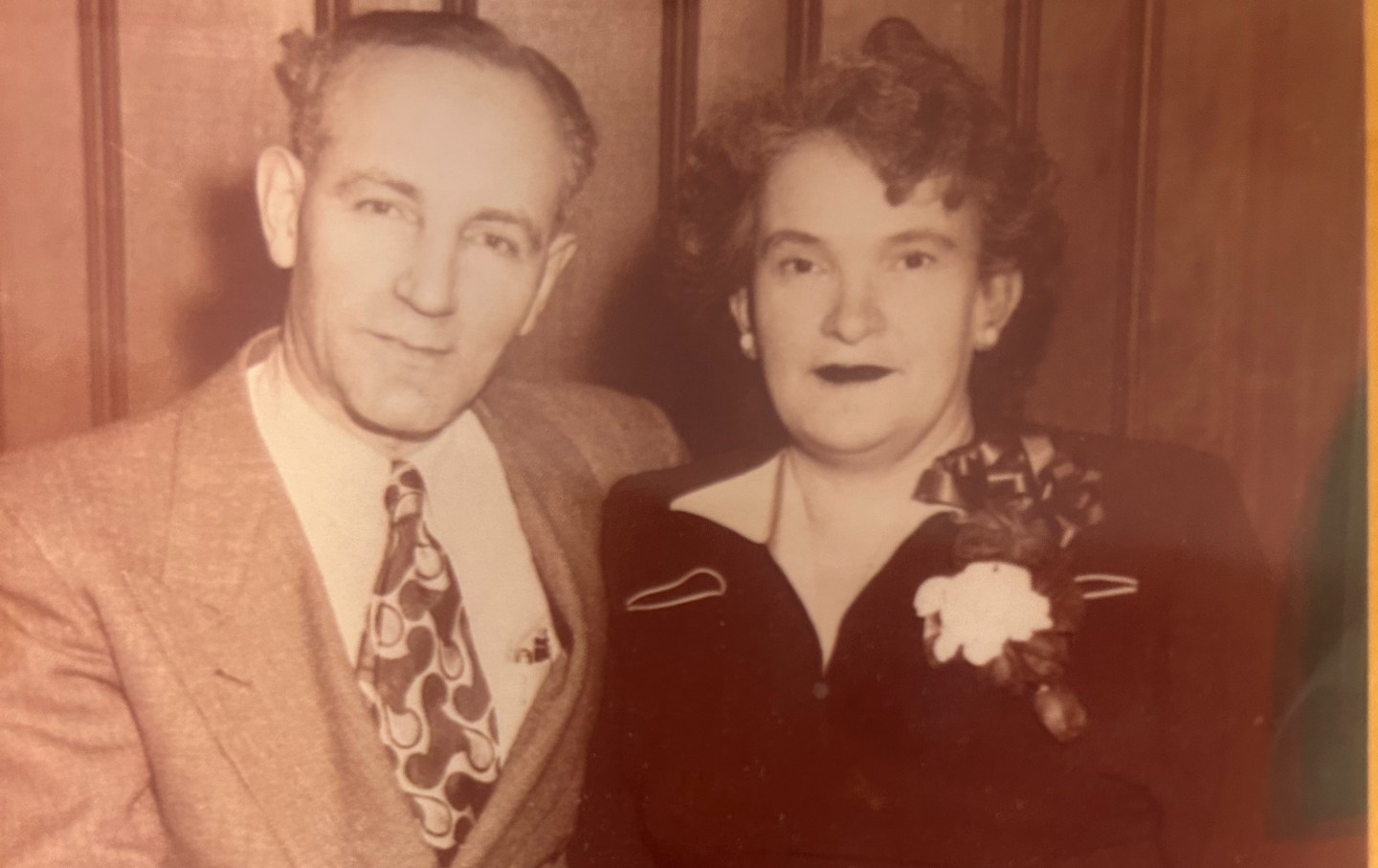
The Supreme Court v. My Mother The Supreme Court v. My Mother
After my mother escaped the Holocaust, she broke the law to save her family. Her immigration story is more pertinent today than ever before.
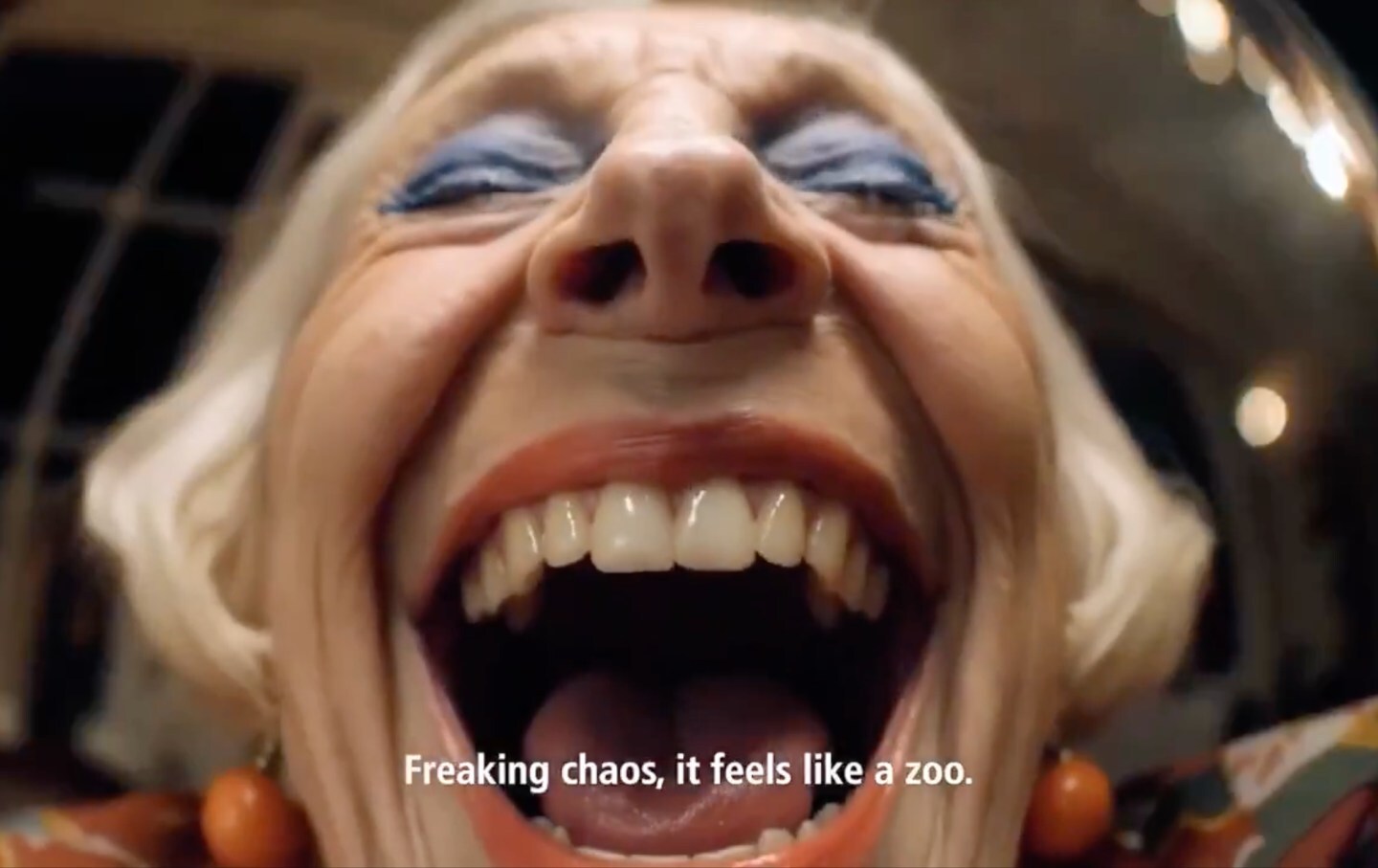
The Slop of Things to Come The Slop of Things to Come
This past week boasted many overhyped AI breakthroughs, but the healthiest one was the fierce repudiation of a contemptuous McDonald’s ad.

Keeping the Police Out of Pregnancy Care Keeping the Police Out of Pregnancy Care
We must be vigilant in keeping law enforcement out of exam rooms.


